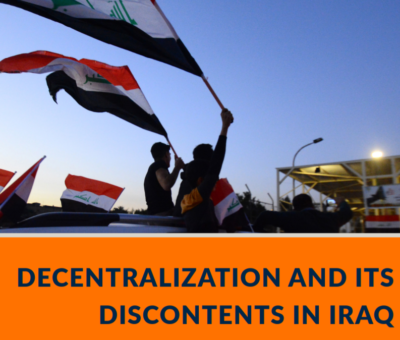Iraq is in the news again and sadly, it’s not good. More than 100 Iraqis were killed in violent protests during the first week of October. The latest troubles are neither sectarian nor terrorist-related. They are motivated by popular frustration with government corruption and a stagnant economy. A Self-Inflicted Tragedy With demands increasing in Baghdad streets for, i
Read MoreThe public’s demands are just and their patience is all but gone, so Baghdad needs to get on with the hard work of opening up the economy and providing critical services before the violence spirals out of control. While Washington focuses on getting Baghdad to rein in militias and end its dependency on Iranian energy, Iraqi citizens have been seething about other matters. Fuel
Read MoreSummary In Iraq the issue of decentralization tends to kick up a flurry of activity and discussion whenever Law 21 is amended or a governor attempts to create a new region. Otherwise though, federalism only draws attention as it relates to Baghdad-Kurdistan Regional Government (KRG) relations, oil revenue sharing, or both. However, while federalism rarely lends itself to meani
Read MoreIraq now has a new government in place, six months after holding elections against a backdrop of a long period of political instability and social unrest. With the new leadership of Prime Minister Adel Abdel Mahdi and President Barham Salih—both widely touted as reformist, progressive, and Western-leaning—there are high hopes that the country will turn a new chapter after three
Read MoreAdel Abdul Mahdi showed himself to be a good analyst of the country’s problems. But his cabinet choices show he may not have the solutions. In an essay he wrote on his Facebook page five months ago, Adel Abdul Mahdi said he wouldn’t want to be Iraq’s next prime minister. The country’s toxic political culture would make it impossible to govern, he claimed. “
Read More





